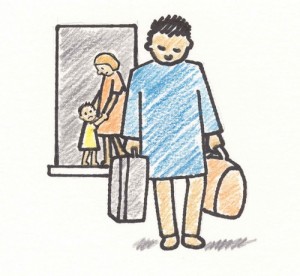 Family law and bankruptcy seem to go together.
Family law and bankruptcy seem to go together.
When couples divorce, the family income won’t cover the debts and two households.
Or, discharging debts may be more efficient than a fight over who pays what.
Or, the cost of the divorce triggers the need for bankruptcy relief.
Different debts, different rules
Bankruptcy treats each of these family law matters differently.
- Support
- Property division
- Liability to others
BAPCPA made a fundamental change when it made any debt to a spouse, former spouse or child of the debtor incurred during a divorce or separation proceeding non dischargeable in Chapter 7. See 523(a)(15)
Support
Child support, spousal support, family support, maintenance: whatever it’s called where you live, it is not dischargeable in bankruptcy. See the exceptions to discharge in 523(a)(5).
Property division
The filing of bankruptcy by one spouse stays the division of property in an ongoing divorce. Any property rights that a debtor has, choate or inchoate, become part of the estate.
Any debt created to even the division of property in a divorce is not dischargeable in Chapter 7 but is dischargeable in Chapter 13.
Any property that passes through the bankruptcy and is returned to the debtor at the end of the bankruptcy case by reason of no equity or a claim of exemption can be divided between the spouses after bankruptcy.
Liability to third parties
The debts of the marriage, which might otherwise have to be divided between the spouses, can be discharged in bankruptcy. A bankruptcy filing won’t discharge those kinds of debts which are simply not dischargeable under the Bankruptcy Code, such as recent taxes or student loans.
Personal liability for secured debts, like mortgages and car loans, can be discharged, but the lien on the asset generally survives a Chapter 7 discharge.
Automatic stay
The injunction that is created by a bankruptcy filing stops most legal actions pending when the case is filed. It does not halt actions to establish the right to support; to collect support from post filing wages; to address domestic violence; or to dissolve the marriage without dividing the property.
Far more is involved
The intersection of bankruptcy law and family law is often described as the collision of two different worlds. We will discuss these issues in more depth elsewhere on this site.
A related post on claims with a priority for payment in bankruptcy is found on our sister site, Bankruptcy Soapbox, in the Bankruptcy Alphabet.
Image courtesy of 05com.
